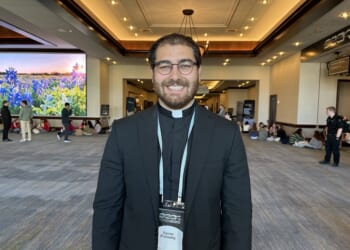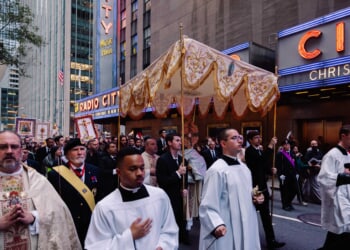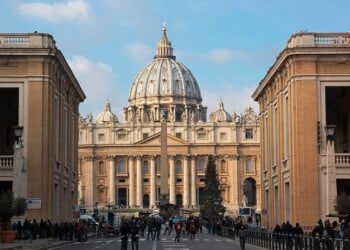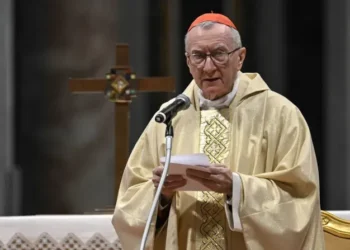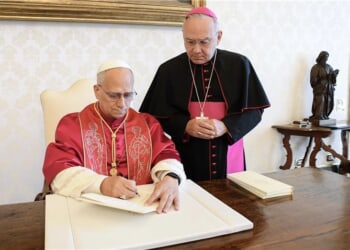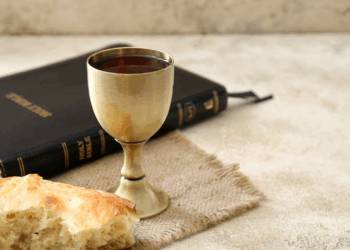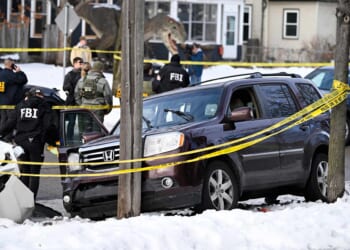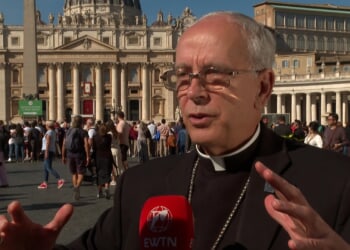ET Editor: In light of my recent editorial, The Anglican rot set in long ago, and other articles I have written which called for all faithful evangelicals to come out of the Church of England, my friend Revd Dr Richard Turnbull asked whether he could respond. Here is what he has to say…

The Anglican rot began a long time ago. As an Anglican minister, formerly the head of an evangelical Church of England training college (Wycliffe Hall), I can vouch for the veracity of the Evangelical Times editorial. As debates around human sexuality come to the fore once again it is rather like dancing a waltz, zigzagging across the dance floor, from one direction to another. Sometimes in the Church of England the more liberal position seems dominant, on other occasions, the more conservative.
The House of Bishops of the Church of England is roughly 80-20 in favour of the blessing of same-sex unions, the House of Clergy and the House of Laity, approximately 50-50 with some hope that they would block further progress. There two fundamental problems which this scenario disguises. The first is that God cannot be divided. The Lord of heaven and earth does not divide 50-50 on any matter of faith or doctrine. The second, is that is raises the very nature of a church. If a church ceases to preach and proclaim the pure gospel then does it constitute a church at all?
Article 19 of the Church of England’s Thirty-nine Articles of Religion (1571), ‘Of the church’, perhaps the most Protestant of the Church of England’s foundation documents, could not be clearer:
‘The visible Church of Christ is a congregation of faithful men, in which the pure Word of God is preached, and the Sacraments be duly ministered according to Christ's ordinance, in all those things that of necessity are requisite to the same. As the Church of Jerusalem, Alexandria, and Antioch, have erred, so also the Church of Rome hath erred, not only in their living and manner of Ceremonies, but also in matters of Faith.’
This definition is entirely consistent with Calvin and the classic Protestant tradition. The question facing us is whether the Church of England (its’ own doctrinal standard) still meets this definition or has become a compromised church preaching a false gospel. The evidence suggests we are remarkably close to that boundary.
There is an inherent tension in that, in respect of the so-called blessing of same-sex unions, the bishops will continue to authorise a position that is contrary to both the holy scriptures and, indeed, the doctrine of the Church of England despite the fact they acknowledge that the Church is unlikely to formally approve such a position.
We should note also, for those that do remain, conservative clergy have already had to deal with how they relate to female bishops (overseers) and now to a female Archbishop. The sadness here, is that for too many supposedly conservative clergy, this does not seem to be an issue. That, of course, is because the real issue is the authority of scripture, the Anglican rot did indeed set in a long time ago.
Why then does it seem so difficult for the faithful conservative evangelical to leave the Church of England? There are two reasons, only one of which carries much weight. The strongest argument is the appeal to those original Protestant foundation documents. This is the church, grounded in the holy scriptures, we conservative clergy have not moved or changed our position, there is no reason to leave a faithfully constituted church. Except that church is increasingly unfaithful.
The second reason is that rather inexplicable attachment of class to the establishment nature of the Church of England and its intricate relationship with certain private schools, networks, churches, families and so on. This has proved immensely damaging to conservative evangelicalism within the Church of England. It is, at least sometimes, expressed in really rather unbiblical ways. We should not, however, underestimate the hold that this position has over individual conservative clergy.
I have recently been diagnosed with a serious illness, in human terms, life-limiting. A card arrived from an elderly parishioner who has been attending our local Anglican village church, probably for fifty years or more. We threw in our lot in here a few years’ ago to assist the local, faithful rector. We introduced a weekly bible study, and I was able to preach monthly. The card was humbling. She said, ‘I need to tell you how much you have helped me to grow in my Christian faith.’ Her life, she said, had been transformed. For me, this is now the only reason to remain within the Church of England and its parish ministry. But, for how long?
Sign up for Evangelical Times
The Reformed Evangelical Christian newspaper online and in print. Worldwide news, comment and analysis on topics crucial to biblical Christian life today.
.nc-loop-dots-4-24-icon-o{–animation-duration:0.8s}
.nc-loop-dots-4-24-icon-o *{opacity:.4;transform:scale(.75);animation:nc-loop-dots-4-anim var(–animation-duration) infinite}
.nc-loop-dots-4-24-icon-o :nth-child(1){transform-origin:4px 12px;animation-delay:-.3s;animation-delay:calc(var(–animation-duration)/-2.666)}
.nc-loop-dots-4-24-icon-o :nth-child(2){transform-origin:12px 12px;animation-delay:-.15s;animation-delay:calc(var(–animation-duration)/-5.333)}
.nc-loop-dots-4-24-icon-o :nth-child(3){transform-origin:20px 12px}
@keyframes nc-loop-dots-4-anim{0%,100%{opacity:.4;transform:scale(.75)}50%{opacity:1;transform:scale(1)}}
No spam. Unsubscribe anytime.





